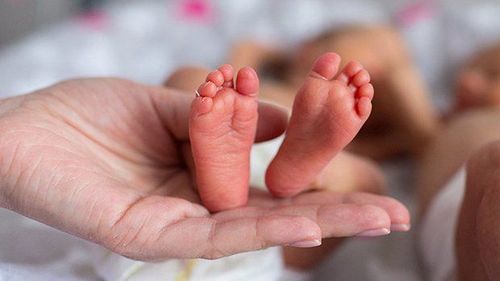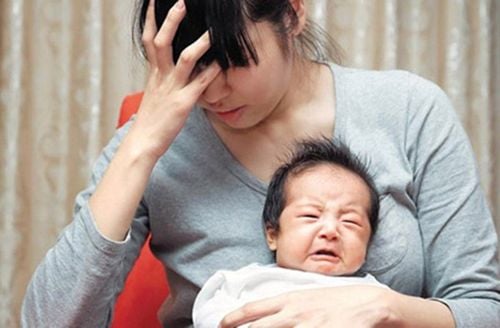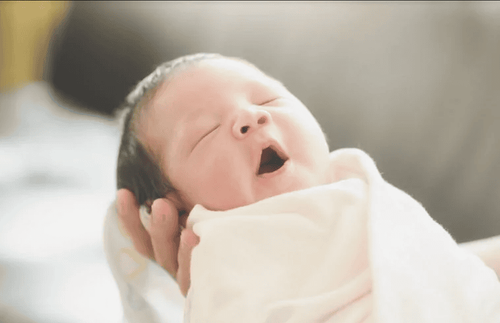This is an automatically translated article.
Cohesion is the strong attachment formed and developed between parents and children. It makes parents want to take care and protect their children with all their love. This bond is formed in the process of daily care such as talking with children.
1. What is cohesion?
When experts talk about bonding, they are referring to the intense attachment that is formed between a parent and a baby. It is the feeling that makes you want to care for your baby with love or do anything to protect him from danger.
For some parents, this happens within the first few days or even minutes after birth. For others, this bonding process takes longer. In the past, researchers who have studied this process think that spending time with infants during the first few days is crucial for establishing a bond between a child and a parent.
But now we know that this association can happen over time, not necessarily immediately after birth. Parents who have to be separated from their child soon after birth for reasons of the child's or mother's health or adopt a child also develop close, loving relationships.

Cho trẻ bú mẹ sẽ giúp tạo nên sự gắn bó chặt chẽ
2. What if the bond is not formed immediately?
Do not worry. Forming a bond between parents and children often takes time. As long as you take care of your baby's basic needs and cuddle him regularly, he won't have any negative effects on the infant's psychophysiology if you haven't felt a strong bond with him yet. first sight.
Edward Christophersen, a pediatric psychologist in Kansas City, Missouri says: "There is so much research on bonding with a newborn that mothers often feel guilty if they don't feel the attachment. strong bond with their new baby.The process of forming a bond is actually a personal experience for each person, so your experience is unlike anyone else's and this bonding will grow in time"
You shouldn't make it difficult for yourself, being a first time parent is already exhausting work. Many mothers feel stressed, overwhelmed, or even unhappy during the first few weeks, also known as the baby blues. And if you're having a hard time giving birth, you may need more time to recover before you can focus on building a bond with your baby.
In some cases, an underlying medical condition can be a barrier to bonding. Some women experience a drop in thyroid hormone about four to eight months after giving birth. Low thyroid levels can make you feel depressed, irritable and have trouble sleeping or concentrating, thus putting you in the mood to smile and comfort your baby. Get medical attention if you have any of these symptoms, or if you notice other signs of an underactive thyroid, such as weight gain, constipation, or dry skin.

Lần đầu tiên làm cha mẹ đã là một công việc rất mệt mỏi, không nên quá lo lắng
3. What are some ways to build a bond with my child?
The parent-child relationship develops through daily care. Your baby may be cute and cuddly, but he's also a whole new person that you need to take time to get to know. There are no universal formulas or miracles that help form and build the bond between parents and children.
Parents should spend a lot of time cuddling skin-to-skin with their babies. The soft touch to the skin is very comforting for both you and your baby, so cuddle and play with your baby often. Breastfeeding: Breastfeeding releases hormones in your body that promote relaxation as well as feelings of attachment and love. Talk to babies every day. Look your baby in the eye while you talk and sing to him. Talk about what you're doing, thinking, and feeling about anything. Play with your child every day. Spend a lot of time face-to-face with your baby. Smile at your baby and smile when he smiles at you. After a while, you will have a conversation with the child in the form of a smile, when you smile, the child will smile to answer you. Read books to children every day.
4. Is it unusual for me to have trouble forming a bond with my child?
No, it is not uncommon for parents to have difficulty building a bond or attachment with their child. Becoming an overnight parent is one of the biggest life changes, and it's natural and understandable to have a lot of mixed emotions.
You can find parenting groups to share experiences, where you can exchange stories with others and you may be surprised to meet many others who feel the same way.
Some mothers share that, even though they are looking forward to, they will feel the deep and intense maternal love for the baby at first sight. However, this mother was surprised when, despite natural birth and breastfeeding, the mother felt that her baby was like a stranger. However, this has changed over time and now she has gained a feeling of unconditional love and loves spending time with her dear child.
The above mother also shared, she had to read the document a lot and had to adapt to the new situation. Although it is known that there are some difficulties that affect the emotional state of motherhood, for example, this mother had bleeding after giving birth and the anemia persisted for quite a while. The second factor is that breastfeeding is also not very pleasant and however, exclusive breastfeeding is a necessity that any mother should give her baby.
Besides, for those who form a bond with the child immediately, that's great. For those mothers who are not so lucky, please be patient and continue to take care of the baby with all your heart. Be gentle and patient with yourself and your baby, and over time, a loving bond between you and your baby will form and grow strong.
It takes a lot of parents a little longer to start feeling a bond with their child. If, after a few weeks, you feel no more attached to your baby than you did on the first day, go to a medical facility for examination and support.

Rất nhiều cha mẹ phải mất nhiều thời gian hơn để bắt đầu cảm nhận thấy sự gắn kết với con
Some new mothers have difficulty bonding with their baby because they are struggling with postpartum depression (PPD). This is a common condition that occurs in at least 10 percent of births and can lead to serious consequences if left untreated. Get medical care if you experience five or more of the following symptoms, daily or for at least two weeks in a row:
Extreme sadness, feeling empty or hopeless Constant crying Loss of interest or decreased interest in your previously usual activities and hobbies Difficulty sleeping at night or trouble sleeping during the day Loss of appetite or overeating Unexplained weight gain or loss Frequently feeling useless or worn out guilt Restlessness or lethargy Difficulty concentrating or making decisions Feeling life is not worth living Other signs of postpartum depression include being irritable or angry, lack of interest in your baby baby, avoiding friends and family, constantly doubting your ability to care for your baby, and worrying excessively about your baby.
If you are worried that you may have postpartum depression, you don't need to feel ashamed to seek help and treatment, as this is the best you can do for both you and your baby. . If your doctor suspects you may have postpartum depression, he or she will refer you to a therapist or psychiatrist for treatment.
If you have difficulties in taking care of and raising your baby, parents can visit and seek advice from qualified doctors at Vinmec International General Hospital. At Vinmec, there are now a full range of specialties, systems, modern machinery and equipment, a team of qualified and experienced doctors who will give advice to help parents not only have more experience in taking care of children, but also have good parenting and bonding skills.
Reference source: babycenter.com
SEE ALSO:
Newborn care until full month Care of babies in the perinatal period (first 7 days after birth) A complete guide to newborn care













